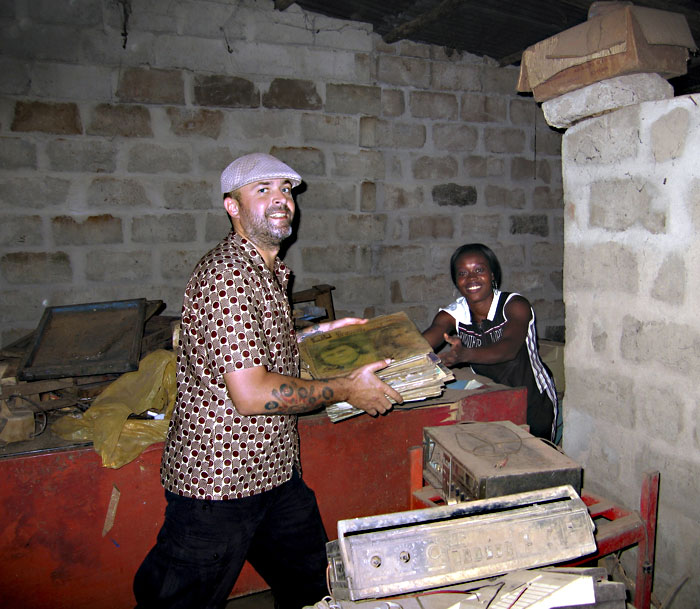On the surface, Ryan Boudinot’s stories present idyllic landscapes of American culture. His characters live in neighborhoods “every American should be familiar with by now.” They work at drugstores with pharmacists who “care about [their] customers.” And they shop at “lifestyle centers with . . . Crate & Barrel and Anthropologie.” He leads you into these benign settings and relaxes you with his casual, conversational writing; then he brings in a serial-killer father for show-and-tell, or a cannibalistic mother who eats her children’s classmates.
The Littlest Hitler marks one of the more exciting short-story collections to come out of Seattle in a long time. In what might be called the Twin Peaks literary tradition, he juxtaposes a world of cherry pie against an undercurrent of evil. Basic American values face absurdist challenges. What if kids had to kill their parents to get into college? What if zombies worked at factories? What if terrorists dressed like clowns? Boudinot’s debut is reminiscent of George Saunders’ fantastical allegories. He uses surreal plot twists to evoke everyday moral dilemmas.
Among these 13 stories, there are also plots less provocatively strange than uncomfortably real. After a dinner between two couples, one pair goes upstairs and “makes a baby,” while the other waits below, fighting about the past. In the title story, a young boy dresses up as Hitler for Halloween. At school, of course, he’s confronted by a young girl dressed as Anne Frank.
The effect here and elsewhere is funny without being flippant. Boudinot uses the earnest language of the working class without condescension. Pea plant employees describe the sunrise “like the bloody wound from the chemical burn poster in the break room stretched gloriously across the horizon.” Bellevue tech-workers explain their jobs as “Internetworking solutions for midmarket Customer Relationship Management applications.”
Finally, in “Newholly” (after the local housing project), Boudinot tackles immigration. From his house, a guy watches a Somali mother beat her children, day after day, until he finally confronts her with a torrent of words like “Patriot Act” and “deported.” Only after that rhetoric leads to a violently ambiguous conclusion, is it clear that Boudinot has accomplished the difficult feat of putting the reader at the heart of an irresolvable moral conflict. ROSS SIMONINI








